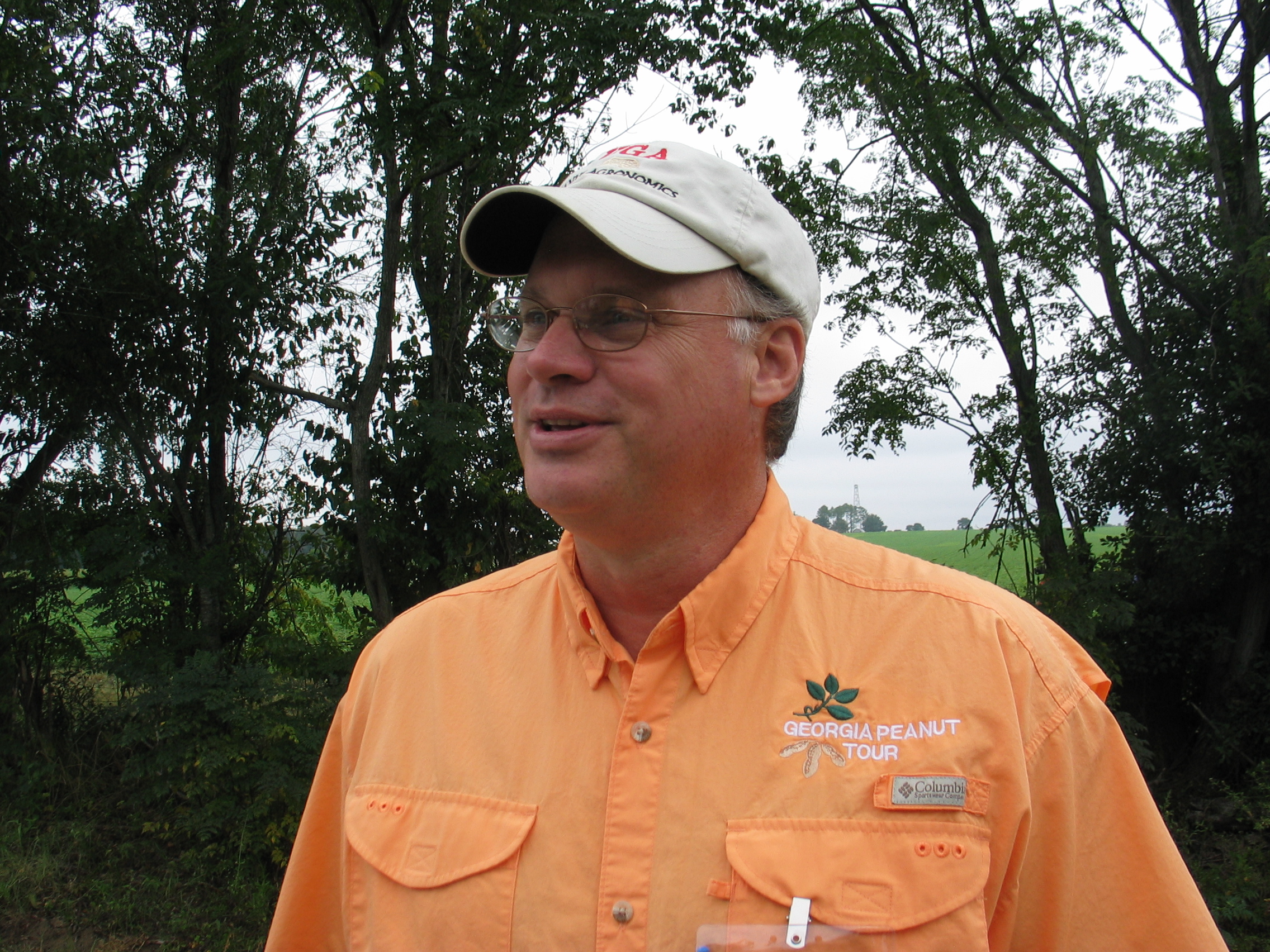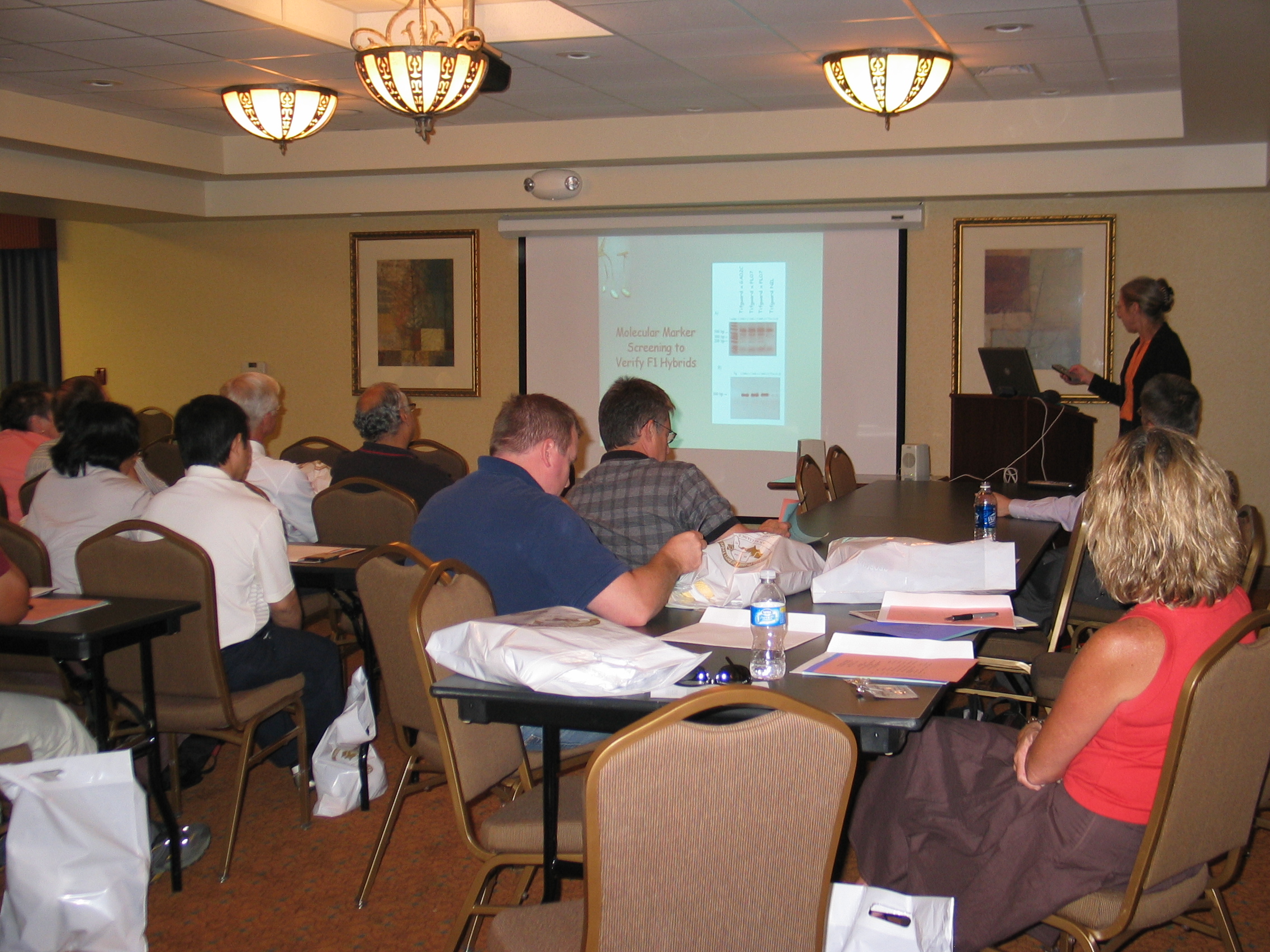Download fact sheet on the economic importance of food and fiber in Crisp County.
Download fact sheet on the economic importance of food and fiber in Crisp County.
 “The Georgia peanut crop is in pretty good shape so far,” says John Bealsey, University of Georgia peanut agronomist. Beasley talked to the 70 attendees at the Hot Topics seminar held prior to the Georgia Peanut Tour. The yield is estimated at 3,150 pounds per acre which is close to the 2007 crop final yield. In Georgia we have 150,000 more planted acres in 2008 than in 2007 so if we are able to maintain yield then Georgia is looking at an increase of 200,000 tons versus last year. At the beginning of planting it was very dry for farmers and now near the end of the season it has been the hottest the last few weeks, Beasley says. This year farmers have faced a variety of crop production issues ranging from weeds to insect damage. The number one problem facing farmers this year is the tobacco budworm which is related to the corn earworm. Entomologists as far back as the mid 1950s cannot remember a problem as bad as this year where you had to spray for just one insect like the tobacco budworm. Another problem facing farmers in weed control focuses on herbicide resistance palmer amaranth. White mold continues to be the biggest culprit in diseases. According to Dr. Beasley, “We’ve had problems but farmers have dealt with it. We have good potential for the peanut crop even though it has cost our producers.”
“The Georgia peanut crop is in pretty good shape so far,” says John Bealsey, University of Georgia peanut agronomist. Beasley talked to the 70 attendees at the Hot Topics seminar held prior to the Georgia Peanut Tour. The yield is estimated at 3,150 pounds per acre which is close to the 2007 crop final yield. In Georgia we have 150,000 more planted acres in 2008 than in 2007 so if we are able to maintain yield then Georgia is looking at an increase of 200,000 tons versus last year. At the beginning of planting it was very dry for farmers and now near the end of the season it has been the hottest the last few weeks, Beasley says. This year farmers have faced a variety of crop production issues ranging from weeds to insect damage. The number one problem facing farmers this year is the tobacco budworm which is related to the corn earworm. Entomologists as far back as the mid 1950s cannot remember a problem as bad as this year where you had to spray for just one insect like the tobacco budworm. Another problem facing farmers in weed control focuses on herbicide resistance palmer amaranth. White mold continues to be the biggest culprit in diseases. According to Dr. Beasley, “We’ve had problems but farmers have dealt with it. We have good potential for the peanut crop even though it has cost our producers.”
 An early bird Hot Topics seminar kicked off the 22nd annual Georgia Peanut Tour on Tuesday afternoon. This seminar covered topics including the 2008 Farm Bill,
An early bird Hot Topics seminar kicked off the 22nd annual Georgia Peanut Tour on Tuesday afternoon. This seminar covered topics including the 2008 Farm Bill,
The Georgia Peanut Tour is set to kick off this week in Cordele, Ga. The tour is set for Sept. 16-18, 2008 and covers peanut production in Cordele and the surrounding area. The tour includes a cross section of field conditions in South Central Georgia, farm visits at Chris Martin’s farm, Dawson Brothers Farm and Chase Farms, as well as peanut harvest clinics, peanut handling and grading facilities including McCleskey Mills and Tifton Quality Peanuts and research at the University of Georgia Southwest Research and Education Center in Plains, Ga., and the National Peanut Research Laboratory in Dawson, Ga. The Early Bird “Hot Topics” Seminar will be held at the Country Inn & Suites in Cordele, Ga., on Tues., Sept. 16 beginning at 3:00 p.m.